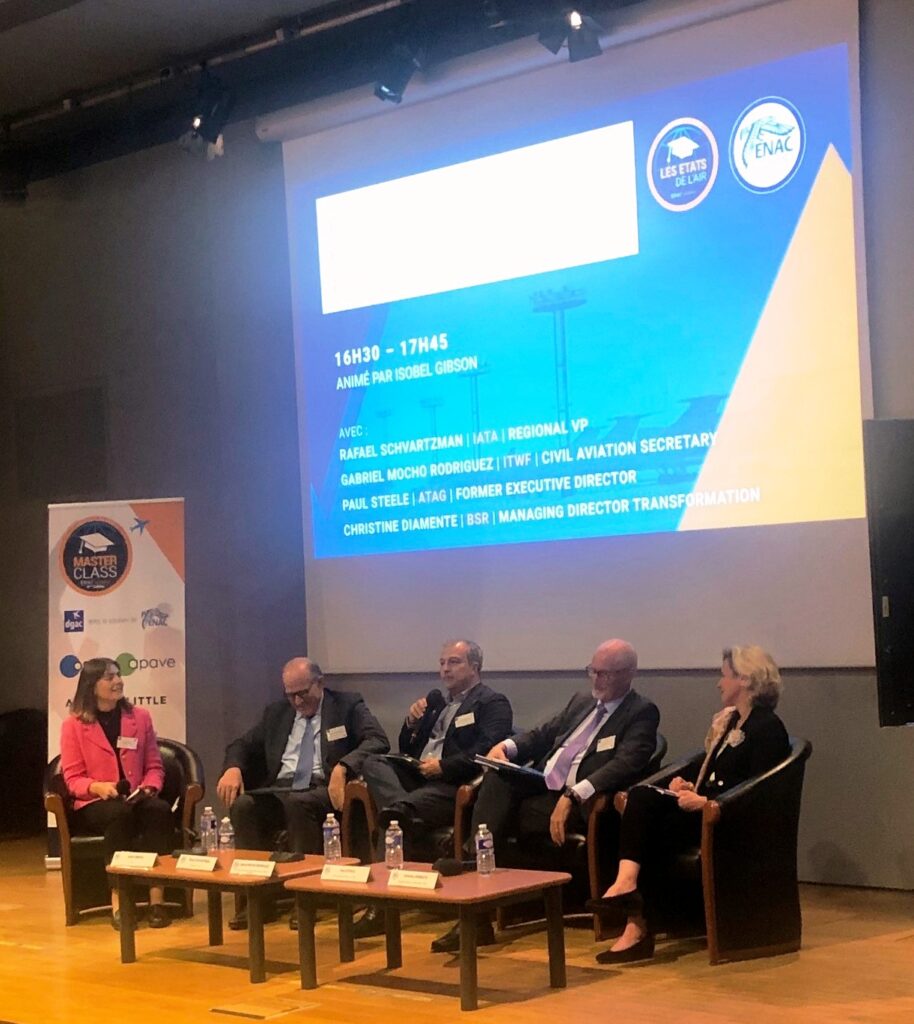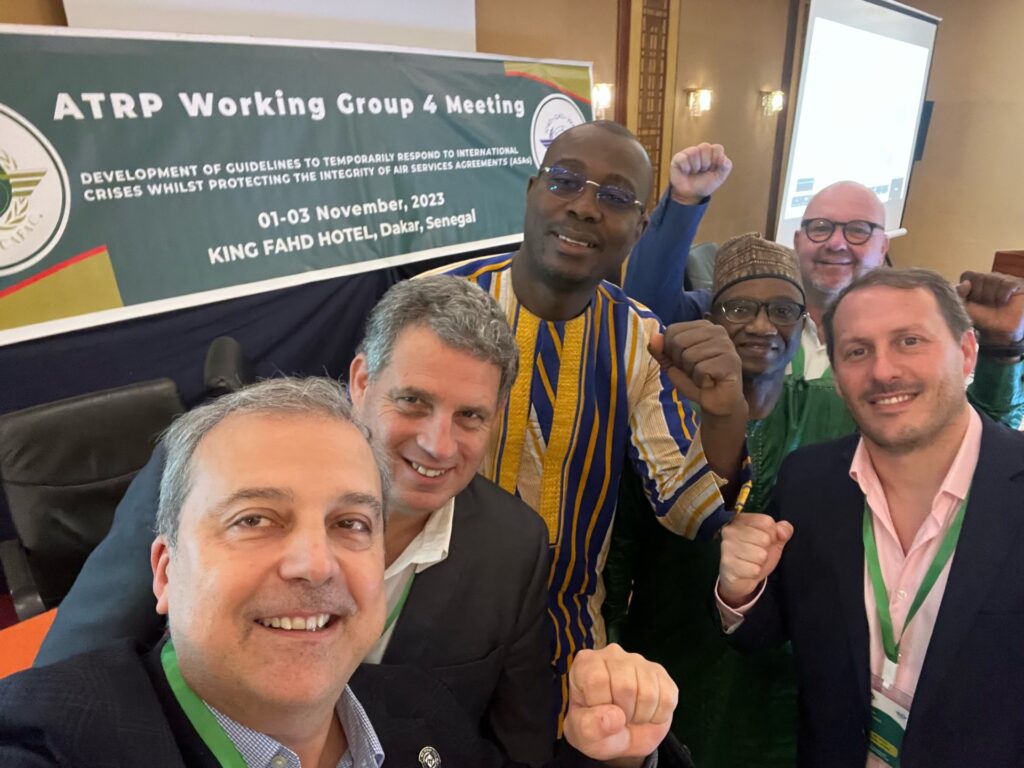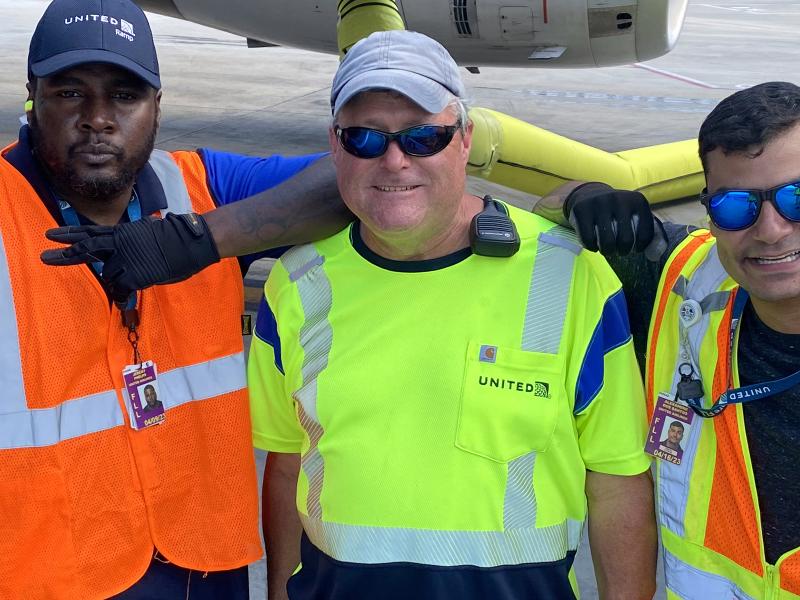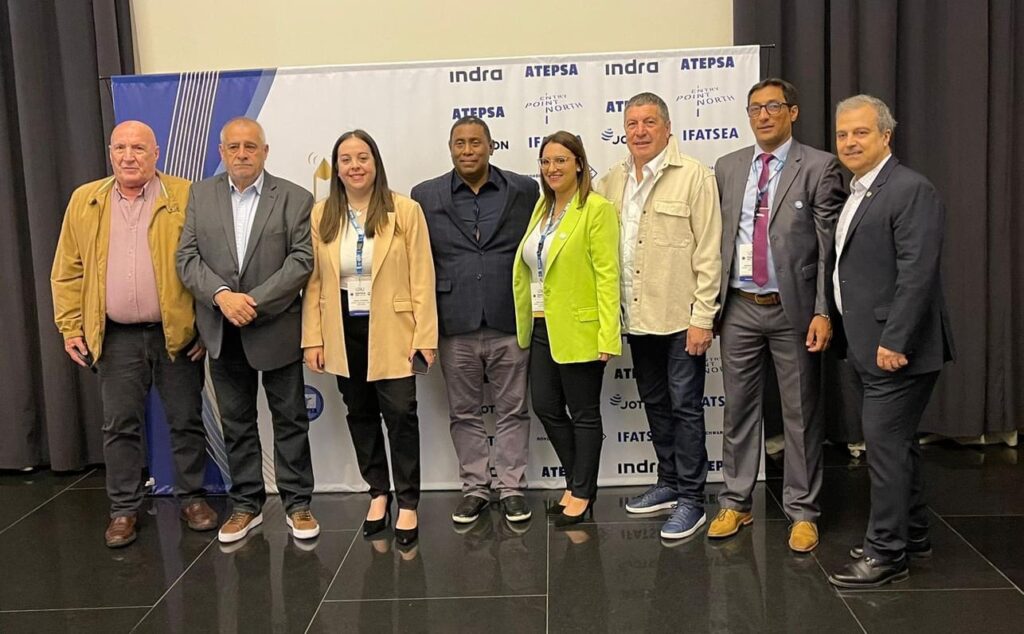The “Etats de l’Air 2023” event in Paris, which commenced with an opening address by Damien Caze, French Civil Aviation Director General, set the stage for an enlightening panel discussion on “Just and Equitable Transition”, on 12 October 2023....

The “Etats de l’Air 2023” event in Paris, which commenced with an opening address by Damien Caze, French Civil Aviation Director General, set the stage for an enlightening panel discussion on “Just and Equitable Transition”, on 12 October 2023. The International Transport Worker’s Federation (ITF) was a prominent participant, addressing pivotal issues regarding the aviation industry’s transition to sustainability.
Moderated by Isobel Gibson, the panel featured insights from distinguished figures, including Rafael Schvartzman from IATA, Paul Steele of ATAG, and Christine Diamente from BSR, alongside Gabriel Mocho Rodriguez, the Civil Aviation Secretary of the ITF. The panel explored various topics related to the environmental and social impacts of aviation, including carbon emissions, new technologies, employment, training, diversity, and worker representation.
Rodriguez emphasized the urgent need for reliable and comprehensive data on how climate policies and new technologies will affect aviation jobs. He proposed a global study involving workers, employers, governments, and organizations to assess the current and future employment situation, anticipate trends, and identify training needs.
He also stressed the importance of respecting workers’ rights and dignity in managing industry changes, including ensuring fair compensation and providing opportunities for skill development. He highlighted the vital role of workers and their trade unions in designing and implementing new aviation technologies to guarantee safety. He also pointed out the need to attract young talent, promote diversity, and address gender disparity as key elements for the industry’s long-term sustainability.
To achieve a just transition, he called for a stronger focus on democratic oversight and worker representation in national and international sustainability initiatives. He urged the aviation industry to take responsibility for its emissions and adopt ambitious measures, with a special emphasis on transitioning to sustainable aviation fuels (SAFs). He also advocated for public investment, research, and innovation, as well as the integration of social criteria such as job creation and gender equality in pursuing aviation decarbonisation.
Finally, Rodriguez recommended new aviation taxation policies featuring robust worker protections, ensuring that individuals dependent on air travel for their livelihoods are not adversely affected.
ITF’s insights illuminate the multifaceted challenges and opportunities shaping the aviation industry’s path towards a more sustainable and equitable future. These proposals serve as a resounding call to action for an aviation sector committed to environmental responsibility and social justice.










